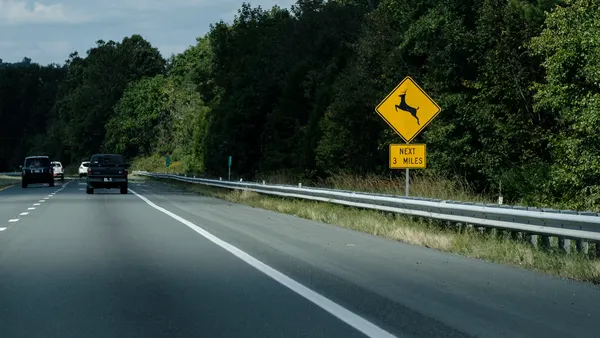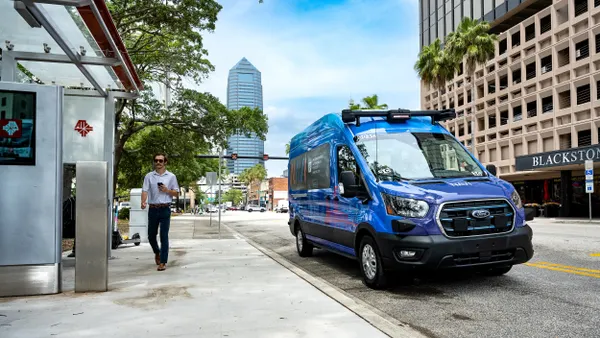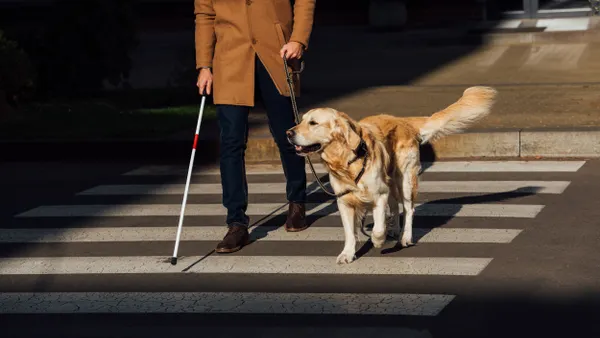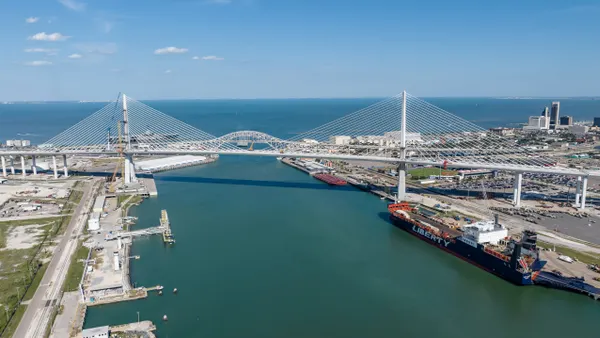Dive Brief:
- Technology in cars and at intersections could help ease the "public health crisis" of rising fatalities on the nation’s roads, but there remains a trust deficit among the general public, said Jeff Klei, president of Continental, North America, at the Intelligent Transportation Society of America’s annual meeting in Washington, DC.
- In a keynote speech, Klei said automated safety systems such as collision warning, automatic emergency braking, lane departure warning, lane keep assist and blind spot warning together could cut 40% of traffic crashes, 37% of injuries and 29% of fatalities.
- Klei said consumers are reluctant to embrace new technology, even as deaths top 40,000 annually for the third straight year. He cited a Continental study that found more than 80% of people think they are a very good driver, while more than 75% are concerned about the reliability of automated safety technology. Given that 95% of traffic crashes are caused by human error, Klei said there is a clear disconnect and the industry has "an awful lot of work to do to communicate the benefits" of safety technology.
Dive Insight:
The rate of traffic fatalities has continued to climb, according to the National Safety Council, while the Governors Highway Safety Administration (GHSA) has also found that pedestrian deaths are on the rise nationwide. Groups such as Smart Growth America and the Complete Streets Coalition have urged better street design to take into account higher pedestrian traffic and non-drivers.
Klei said the growth in safety technology in both cars and intersections should be cause for optimism, especially given how innovations including seat belts, airbags and backup cameras have previously made a dent in death figures after being mandated by the federal government. He said that as the technology matures, it can play a role in addition to other innovations being floated at all levels of government.
"While Vision Zero seems a long way off, it's certainly a lot closer than anyone would think before," Klei said.
For automakers and cities alike, the public trust issue is significant. Faith in autonomous vehicles (AVs) has somewhat stagnated after high-profile incidents like the killing of a pedestrian in Tempe, AZ last year. A survey by infrastructure engineering firm HNTB found 57% of people would be willing to ride in an AV. While automation has been heralded as a way to improve road safety, more work needs to be done to show the public all its benefits.
Klei said the contrasting statistics — a majority of people consider themselves to be very good drivers even as human error is to blame for most crashes — must be examined further. "These two statistics are not aligned," he said.











